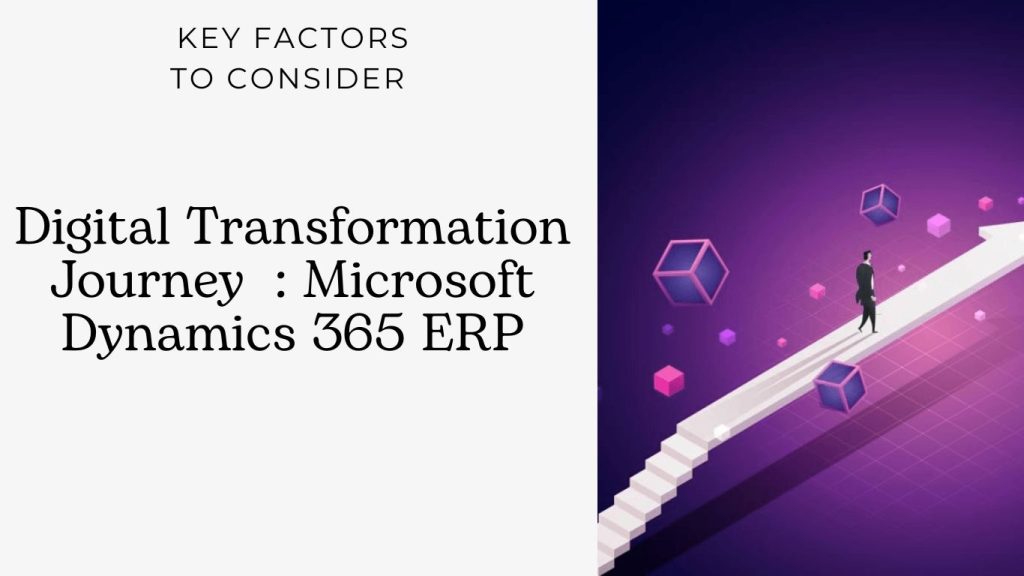- winspireadmin
- June 08, 2023
Implementing an Enterprise Resource Planning (ERP) solution is a significant undertaking for any organization. Microsoft Dynamics 365 Business Central offers a comprehensive suite of business applications that can streamline operations, enhance productivity, and drive growth. However, it requires careful planning, extensive resources, and a reliable partner to ensure successful adoption and maximum return on investment. Selecting the right partner is crucial for the success of your ERP project, as they will play a pivotal role in understanding your business needs, tailoring the solution, and providing ongoing support.
It is important not to look at just the price for implementation but to also consider various other vital parameters before choosing the right partner. For a long road journey, you need to ensure that you have not only a good vehicle but also a good driver who has the ability to drive on difficult terrains and different traffic conditions, making the journey comfortable and helping you reach the destination successfully. The same is true when you choose a very robust ERP system like Microsoft Dynamics 365 Business Central, the right partner makes your journey comfortable and successful.

Expertise and Experience

One of the primary considerations when selecting a partner is their expertise and experience in implementing Microsoft Dynamics 365 ERP . Look for partners who have a proven track record of successful implementations and possess a deep understanding of the solution. They should have a team of certified professionals with expertise in ERP implementation, customisation, integration, and support. Assess their industry knowledge and ensure they have worked with organizations similar to yours.
Also, the number of implementations handled by the partner is a measure of their expertise, experience and competence. A partner that has worked with global renowned customers will have the ability to deliver large scale projects.
Comprehensive Services

Implementing an ERP system involves various stages, including requirements gathering, solution design, data migration, configuration, training, and ongoing support. A reliable partner should offer a comprehensive range of services to support you throughout the entire implementation lifecycle. This includes project management, business process analysis, software customisation, user training, and post-implementation support. Ensure that the partner can cater to your specific needs and align their services with your organizational goals.
Also, the technology is fast evolving and though the core application for running business operations is ERP, it alone cannot serve the needs of any business. There are multiple solutions on multiple platforms which are required to be integrated with the ERP, such as mobility applications, Power BI, Jet Reports, Azure services, Web applications etc. It is best to go with a partner providing all the services together under one roof than to deal with multiple vendors for various solutions.
Industry Experience

Different industries have unique operational requirements and regulations. It is essential to choose a partner who understands your industry with the domain knowledge and experience of working with organizations in your sector. They should be familiar with industry-specific challenges, compliance requirements, and best practices. This industry knowledge will enable them to provide valuable insights and tailor the ERP system to meet your specific needs.
Scalability and Flexibility

As your business grows, your ERP system should be able to accommodate increasing demands and evolving processes. A partner with experience in handling scalable implementations is crucial to ensure that the solution can adapt to your changing requirements. They should have the technical expertise to handle complex integrations, customisations, and system expansions. Additionally, flexibility in adapting the ERP solution to your unique business processes is essential for achieving optimal efficiency.
Customisation and Integration Capabilities

Microsoft Dynamics 365 Business Central is a flexible platform that can be customized to suit your unique business needs. When selecting a partner, it is essential to assess their customisation and integration capabilities. The partner should have the technical expertise to tailor the solution to your specific requirements, ensuring that it aligns with your existing business processes and workflows.
Evaluate their development capabilities. Can they create custom modules, workflows, or reports to address your specific needs? Do they have experience integrating Dynamics 365 with other systems, such as customer relationship management (CRM) or supply chain management (SCM) solutions? Seamless integration with your existing systems is crucial for data consistency and process efficiency.
Additionally, consider their approach to data migration. Implementing a new ERP system often involves transferring data from legacy systems. The partner should have experience in data migration, ensuring a smooth transition of data without compromising its integrity and accuracy.
Project Management and Communication

Effective project management and communication are vital for a successful ERP implementation. The partner should have a structured project management approach, providing clear timelines, milestones, and deliverables. They should assign a dedicated project manager who will serve as the main point of contact, ensuring effective communication and coordination throughout the implementation process.
Assess their ability to understand your business processes and requirements. A good implementation partner will invest time in understanding your organization’s unique challenges, workflows, and goals. They should be able to provide guidance on best practices and suggest process improvements based on their industry expertise.
Look for partners who emphasize collaboration and transparency. They should actively involve your key stakeholders throughout the implementation, seeking their input and feedback. Regular status updates and progress reports should be provided to keep you informed about the project’s status and address any concerns or issues promptly.
Change Management and User Adoption

Successful ERP implementation relies on effective change management and user adoption. The partner should have a structured approach to manage organizational change, including training programs, user engagement strategies, and change communication plans. They should be able to guide your employees through the transition process, minimizing resistance and ensuring a smooth adoption of the new system. Request information on their change management methodologies and success stories related to user adoption.
User Training

After the ERP implementation, ongoing support and training are essential to ensure a smooth transition and user adoption. Consider their training approach. Will they provide comprehensive training to your employees, both during and after the implementation? Training should cover system functionality, best practices, and any customisations made to the solution. User adoption is critical to achieving the desired benefits of the ERP system, so the partner should invest in training programs tailored to different user roles and skill levels.
References and Testimonials

Before finalizing a partner, ask for references and testimonials from their previous clients. Reach out to these organizations to understand their experience working with the partner and the outcomes they achieved. Their feedback will provide valuable insights into the partner’s strengths, weaknesses, and overall satisfaction level. Additionally, explore online reviews and ratings to gather a broader perspective on the partner’s reputation.
Support and Maintenance

ERP implementation requires ongoing support and maintenance. A reliable partner should offer post-implementation support, including troubleshooting, bug fixing, system upgrades, and performance monitoring. Assess their support services, service-level agreements (SLAs), and response times to ensure they can provide timely assistance when needed. A partner with a dedicated support team and a proactive approach to system maintenance will ensure the longevity and stability of your ERP solution.
The organizational requirements of support can keep changing based on business requirements. The type of support models offered by the partner will decide their ability and flexibility to meet the changing needs of the organization. The number of active customers the partner has is also an indication of the quality of the customer support they provide.
Conclusion
Implementation of ERP is not a one-time event but a continuous journey. Even after initial migration to ERP, continuous enhancements are required to the ERP due to raised expectations and changing business scenarios. Hence, you require not just a service provider but a good partner who will be with you through your entire digital transformation journey. Choosing the right partner for implementing Microsoft Dynamics 365 Business Central is a critical decision that can significantly impact the success of your ERP initiative. Take the time to thoroughly assess their qualifications, review client references, and understand their approach to ERP implementation. By selecting a reliable and competent partner, you can set the foundation for a successful ERP implementation that drives operational efficiency, improves decision-making, and fuels organizational growth.
An interesting analogy to conclude this discussion – Implementing ERP is like conducting an open-heart surgery where the best doctor matters and not the cost. Surgery performed by a great doctor will result in an improved lifestyle. Similarly, a great ERP partner will give you improved business results and cost savings in the long run.

Follow us on LinkedIn to keep up with the latest updates on Microsoft Dynamics 365 ERP.
 Singapore
Singapore








